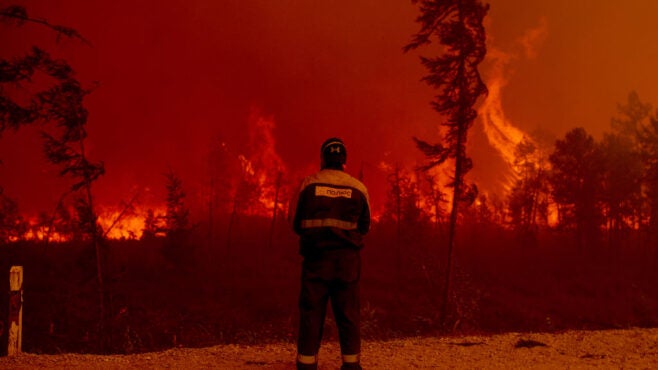President Vladimir Putin has announced that Russia, the world’s fourth-biggest greenhouse gas emitter, aims to be carbon neutral by 2060. While no details were provided on how this will be achieved, previous announcements and policies have put the country’s 815 million hectares of forest at the heart of emissions reduction efforts.

Russia’s nationally determined contribution under the Paris Agreement stipulates that its emissions reductions will be calculated based on “the maximum possible absorptive capacity of forests and other ecosystems”.

Discover B2B Marketing That Performs
Combine business intelligence and editorial excellence to reach engaged professionals across 36 leading media platforms.
Such ambitions might be short-lived, however, as Russian forests are increasingly under threat from massive wildfires. Data from Global Forest Watch, an open-source web application that monitors global forests in near real time, initiated by non-profit the World Resources Institute, shows that wildfires have been the dominant drivers of tree cover loss in Russia over the past 20 years.
On average, a forested area the size of Belgium has burned down in Russia every year – approximately 2.8 million hectares. Combined with other drivers such as the forestry industry and urbanisation, Russia has lost more than 69 million hectares of forests in the last two decades. That is equal to a 9.1% loss of tree cover or 13.2 gigatonnes of CO2-equivalent emissions. Climate change has the potential to further exacerbate wildfires, as the amount of territory likely to experience hotter weather is increasing.
[Keep up with Energy Monitor: Subscribe to our weekly newsletter]

US Tariffs are shifting - will you react or anticipate?
Don’t let policy changes catch you off guard. Stay proactive with real-time data and expert analysis.
By GlobalDataProtecting standing forests is critical for Russia’s climate ambitions due to their role as a large net carbon sink. The reality, however, is that forest sink has been decreasing since 2010, according to data from research group Climate Action Tracker. While cause and effect cannot be proven, this was also the year in which wildfires and deforestation began to rise significantly in Russia.
Large forest fires unlock carbon pollution as they burn. Data from the Copernicus Atmospheric Monitoring Service, part of the EU's Earth observation programme, estimates CO2 emissions from Russian wildfires from June to August 2021 amounted to around 970 megatonnes. This is equivalent to what Germany emits in a year.





